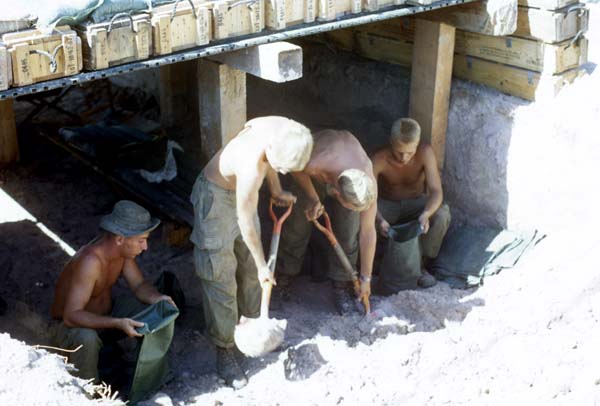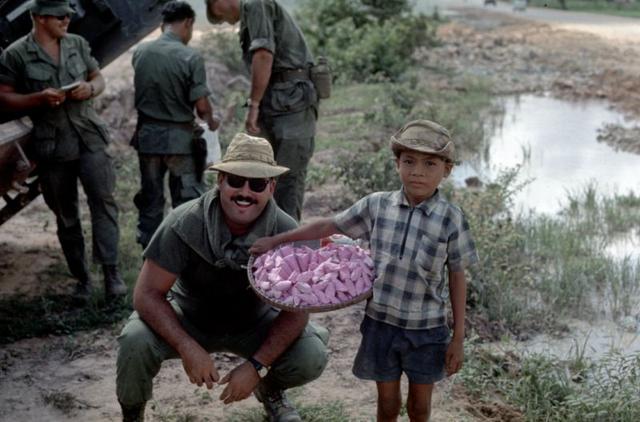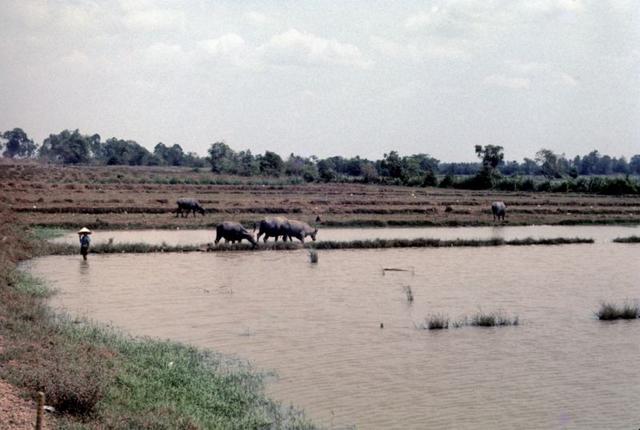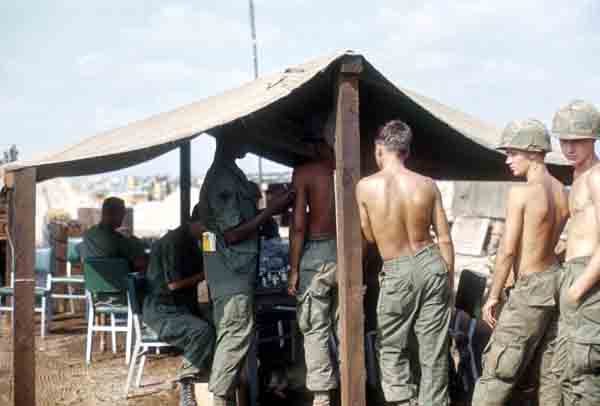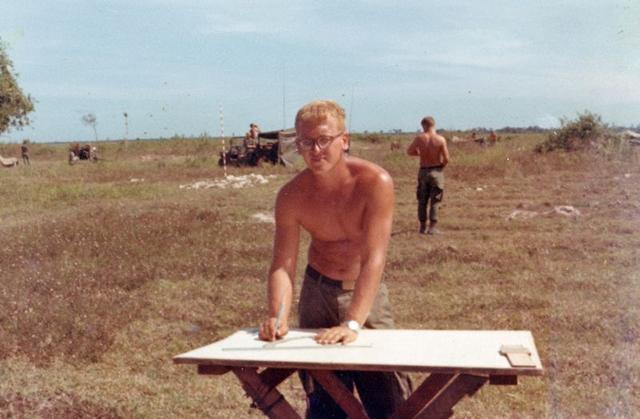32,672,800 seconds
I joined the Army to become an artillery officer, and I actually did go to Officer Candidate school – for a while. My job specialty training was artillery Fire Direction Control (FDC), so when I dropped out after three and a half weeks, the only position available to me was FDC. When I learned I could serve 19 months as an enlisted man versus 36 as an officer, I dropped out in a heartbeat to take 12, 960,000 seconds off my tour.
My section of A Battery 7/11 Artillery was required to live and work in a hole due to the demands of our job. Our battery operated 24/7 and FDC required light to perform our work, so we constructed bunkers to minimize light ejection during the dark hours. By nature, the bunkers we built were dark inside, so we needed artificial light 24/7, but no other part of our battery had electricity. We would take location information radioed by an observer and convert that to settings for our six 105mm howitzers to fire projectiles that landed on the geographic location (in theory) requested by the observer. Reality was not so precise, so our goal was to hit the target with round number three. The observer radioed the changes needed to move the impact zone that we then converted to gun settings that brought the shell closer to the desired spot.
- Chris Woelk-Digging a bunker.
- Chris Woelk-Me at FADAC computer
Light leaking into the night made us an aiming point for enemy gunners, so we sealed our bunker as best we could. To keep rainwater out and light in, we used a canvas sheet and a plastic sheet (if available) below our sandbag roof, which conspired to prevent new air entering or old air leaving. Our air was stale, humid and there was damn little we could do about it. Vietnamese reptiles, insects and mammals loved our environment, made a home living with us humans and were not considerate of our wishes. Six to 10 men working and living in a space less than 24 feet by 16 feet produced enough moisture by breathing and sweating to make it damp every day, year round. Each man spent an average minimum time of 57, 600 seconds (16 hours) inside the bunker each day.
The upside of living and working in our hole was that we had light to read books or write letters during quiet times, making our life more varied and rich compared to all the other sections of the battery. We were also not as exposed to fire, unlike our gunners who did their jobs outside the protective bunkers.
The downside was living in the same space where we worked. Inside the bunkers, tempers were short, fused by our confined space, the high anxiety of the emergency nature of our work, crowded social space and constant lack of sleep. Physical fights did not happen often, but verbal conflict was in the air most of the time, and we kept a close watch on each other to make sure the verbal conflict did not turn physical. Group unity would suffer after a physical confrontation, and unity was critical for us to do our job effectively. It’s not an exaggeration to say that lives depended on us. Mistakes in FDC calculations could result in the death of friendly as well as enemy persons, and when mistakes did happen, the emotional climate became stormy. “Friendly Fire” is not friendly; rather it is deadly, and we did each man’s best to avoid misplacing rounds. But when it did happen as a result of someone in FDC or the gun crews, who were under the same pressure to work mistake-free, tempers blew up and could result in men being removed from that job and assigned to other work. Soldiers were dependent on us, and our accuracy was dependent on the information we received. Everything had to work, including cohabitation in our dungeon.
Our daily job of filling sandbags and adding them to our bunker was one I readily volunteered for just to get the hell out of our bunker and enjoy outdoor air and light. Being outside added some thrill to life, as we were more susceptible to enemy snipers and mortar attacks, so not everyone in FDC wanted to trade being in more danger to work in sunlight and breathe fresh air. I did – it was worth the trade! Some hot and humid nights I slept just outside the bunker when off duty to escape the misery of the hole. Night was the time when we were most frequently mortared, so while sleeping outside added risk to my life, it provided the little bit of “spice” that I needed to survive my time in the hole. I eagerly sought those 28,400 seconds of hole-free living.


